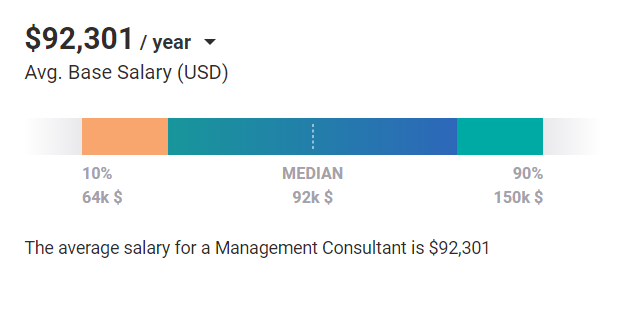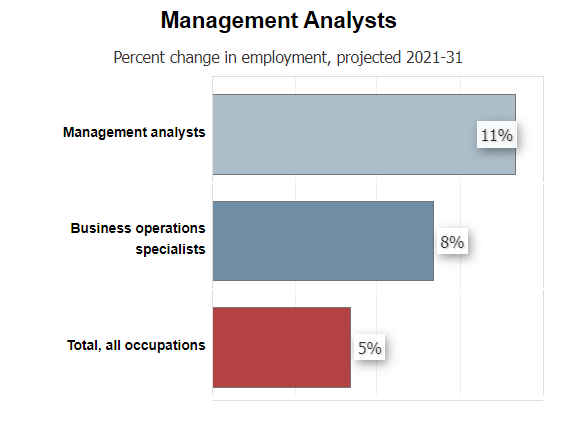The Business of Consulting: A Guide to Management Consulting

Management consulting is a profession that involves providing advice and solutions to businesses, organizations, and governments. Management consultants are experts who provide strategic, organizational, operational, financial, and technological advice to clients in order to help them achieve their goals and objectives. In this article, we will discuss the role of management consultants, their responsibilities, and the skills required to become a successful management consultant.
Role of Management Consultants
Management consultants work with clients to help them improve their business operations, increase profits, reduce costs, and implement new strategies. They are hired by organizations to provide expert advice and guidance on a wide range of issues, including business strategy, marketing, operations, finance, and technology. Management consultants may work independently or as part of a consulting firm.
Responsibilities
Management consultants are responsible for a range of duties and responsibilities that help organizations operate more effectively and efficiently.
Responsibility | Description |
Research and Analysis | Conducting research and analyzing data to gain a deep understanding of the organization they are working with. Collecting data through interviews, surveys, and other research methods and analyzing it to identify problems and opportunities. |
Identifying Problems and Opportunities | Identifying problems and opportunities within the organization, prioritizing issues, and developing solutions to address them. |
Developing Strategies and Plans | Helping organizations develop strategies and plans to achieve their goals. Working with senior management to create a roadmap for the organization, including action plans, timelines, and metrics to measure progress. |
Implementing Solutions | Responsible for implementing the solutions they develop. Working with the organization to ensure that recommendations are put into action and that the organization is on track to achieve its goals. |
Project Management | Managing projects from start to finish. This includes developing project plans, monitoring progress, and ensuring that the project is completed on time and within budget. |
Client Management | Building strong relationships with clients, managing client expectations, communicating effectively, and providing exceptional customer service. |
Training and Development | Providing training and development to the organization's employees, including providing training on new systems or processes, coaching employees on best practices, and developing training materials. |
Marketing and Business Development | Generating new business for the consulting firm by developing marketing materials, attending networking events, and pitching to potential clients. Helping to develop the firm's brand and reputation in the market. |
Did you know?
One of the early management consulting firms was McKinsey & Company, founded in 1926 by James O. McKinsey, a University of Chicago professor. McKinsey & Company quickly established itself as a leader in the field, and today it is one of the largest and most prestigious management consulting firms in the world.
The Role of Management Consultants in Organizational Change Management
Management consultants often provide organizational change-management assistance to their clients. Organizational change-management refers to the process of planning and implementing changes within an organization, such as changes to the company's structure, processes, or culture. These changes are often necessary to improve the organization's performance, achieve its goals, or respond to changes in the business environment.
Management consultants can help organizations manage the process of change by providing guidance, expertise, and support. They can help organizations develop and implement change-management strategies, assess the impact of proposed changes on the organization, and provide recommendations for managing resistance to change. They may also provide training and support to help employees adapt to the changes and ensure that the changes are sustainable over the long term.
Change-management assistance is often a critical component of management consulting engagements. Consultants work closely with their clients to understand the organization's needs and goals and develop a customized approach to change management that is tailored to the organization's unique challenges and circumstances. By providing expert guidance and support, management consultancies can help organizations successfully navigate the complex process of organizational change and achieve their desired outcomes.
Skills Required to Become a Management Consultant
- Analytical skills: Management consultants must have strong analytical skills to be able to analyze data, identify trends, and develop recommendations.
- Problem-solving skills: Management consultants must be able to identify problems, develop solutions, and implement them in a timely and effective manner.
- Communication skills: Management consultants must have excellent communication skills to be able to present findings and recommendations to clients in a clear and concise manner.
- Project management skills: Management consultants must be able to manage projects from start to finish, ensuring that they are completed on time, within budget, and meet the client's objectives.
- Industry knowledge: Management consultants must have a deep understanding of the industry they are working in, including trends, challenges, and best practices.
- Interpersonal skills: Management consultants must be able to work effectively with clients, colleagues, and other stakeholders to build strong relationships and achieve project goals.
Salary
According to data from the U.S. Bureau of Labor Statistics, the median annual salary for management consultants was $93,000 as of May 2021. The average hourly wage was $44.71.
According to Payscale, as of March 2023, the average salary for a management consultant in the United States is around $92,301 per year, with a range typically between $64,000 to $150,000. However, it is important to note that salaries can vary widely based on a variety of factors, including the consultant's education, skillset, and the industry they are working in.

Source: PayScale
Differentiation by States
The salary of management consultants varies significantly depending on the state in which they work. According to data from the Bureau of Labor Statistics, the states with the highest average annual salary for management consultants are:
- New York - $121,750
- Massachusetts - $114,890
- California - $111,270
- District of Columbia - $106,240
- Illinois - $97,320
Factors that Influence Earnings
Several factors can influence the earnings of management consultants, including:
- Experience: The more experience a management consultant has, the higher their salary is likely to be.
- Education: Management consultants with advanced degrees, such as an MBA or PhD, may earn higher salaries than those with only a bachelor's degree.
- Specialty: Management consultants who specialize in high-demand areas, such as healthcare or technology, may earn higher salaries than those in other areas.
- Industry: Management consultants working in certain industries, such as finance or technology, may earn higher salaries than those in other industries.
Ways to Improve Earnings
If you're a management consultant looking to improve your earnings, there are several ways you can do so:
- Gain experience: The more experience you have as a management consultant, the higher your salary is likely to be.
- Obtain advanced degrees: Consider pursuing an advanced degree, such as an MBA or PhD, to increase your knowledge and marketability.
- Develop specialized skills: Focus on developing specialized skills in high-demand areas, such as data analytics or digital transformation, to make yourself more valuable to clients.
- Network: Build a strong professional network to connect with potential clients and expand your opportunities.

Source: PayScale
Additional Benefits
In addition to competitive salaries, management consultants may also receive additional benefits, such as:
- Health insurance and retirement plans: Many consulting firms offer health insurance and retirement plans to their employees.
- Performance bonuses: Some consulting firms offer performance-based bonuses to their employees as a way to incentivize them to work hard and achieve results.
- Travel perks: Management consultants often travel for work, and many consulting firms offer travel perks, such as airline miles and hotel points, to their employees.
- Flexibility: Management consulting offers a great deal of flexibility, including the ability to work remotely or on a flexible schedule, which can be a valuable benefit for many professionals.
The management consulting industry is estimated to be about $330 billion in 2023. The industry is expected to reach $343.5 billion by 2025.
Job environment
The job environment of a management consultant can vary depending on their specific role, client base, and industry focus.
Description of settings
Management consultants can work in a variety of settings, including consulting firms, independent consulting, and in-house consulting roles within larger organizations.
Consulting firms are typically the largest employers of management consultants, and they range in size from small boutique firms to large multinational organizations. These firms can specialize in specific industries or offer a broad range of services to clients across multiple sectors.
Independent consultants, on the other hand, work on a freelance or contract basis and may have their own businesses or work through platforms like Upwork or Freelancer.com. They often work with smaller clients and may specialize in a specific area of expertise.
In-house consulting roles are becoming more common, particularly in larger organizations that require ongoing support for internal projects or initiatives. These consultants work directly for the company they are consulting for and may be responsible for managing projects, developing strategies, or implementing new processes.
Description of tools
Management consultants rely on a variety of tools and resources to perform their jobs effectively. These can include industry-specific software, financial analysis tools, project management software, and data analytics tools. Many management consultants also rely heavily on their communication and interpersonal skills, as they are often required to work closely with clients and other stakeholders to achieve their objectives.
Some management consultants may also use specialized tools such as Six Sigma, Lean, or Agile methodologies to improve business processes or project management practices. These tools are designed to help identify and eliminate inefficiencies, streamline workflows, and improve overall business performance.
Work Schedule
The work schedule of management consultants can vary depending on the project they are working on and the needs of their clients. They may work long hours, including evenings and weekends, to meet tight deadlines and deliver high-quality work.
Management consultants may also be required to travel frequently, depending on the location of their clients and the scope of the project. They must be prepared to work in different time zones and adjust their schedules accordingly.
However, some consulting firms offer more flexible work arrangements, such as remote work or a flexible schedule, to accommodate the needs of their employees. Some consulting firms also offer part-time or project-based work, which may allow for more control over the work schedule.
In addition, management consultants must be prepared to work under pressure and handle multiple tasks simultaneously. They must be able to prioritize tasks and manage their time effectively to meet project deadlines and deliver high-quality work.
Did you know?
McKinsey & Company, Boston Consulting Group (BCG), and Bain & Company are three of the largest and most prestigious management consulting firms in the world.
Education
To become a management consultant, individuals typically need a combination of education, experience, and specialized skills.
Bachelor’s Degree
A Bachelor’s degree in business administration, management, economics, or a related field is often the minimum requirement for entry-level positions in management consulting. This degree typically takes four years to complete and provides students with a foundation in business principles, such as accounting, finance, marketing, and operations.
Master’s Degree
A Master’s degree in business administration (MBA) is a common requirement for mid-level and senior positions in management consulting. This degree typically takes one to two years to complete and provides students with an in-depth understanding of business strategy, organizational behavior, leadership, and decision-making. Some management consulting firms also prefer candidates with specialized Master’s degrees in fields such as finance, marketing, or data analytics.
Ph.D.
A Ph.D. in business administration, management, or a related field is typically required for academic and research positions in management consulting. This degree typically takes four to five years to complete and involves advanced coursework, original research, and the completion of a dissertation. A Ph.D. can also be an asset for management consultants who work with clients in highly specialized fields, such as healthcare or technology.
Postdoctoral Fellowship
A postdoctoral fellowship is a research or training program that provides additional experience and education for individuals who have completed their Ph.D. Postdoctoral fellowships can be a valuable way for management consultants to gain specialized knowledge and expertise in areas such as data analytics, finance, or marketing. These fellowships typically last one to three years and may be offered through universities, research institutions, or private organizations.
Professional Associations
Professional associations are organizations that represent and support individuals working in a specific industry or profession. There are several professional associations for management consultants, including the Institute of Management Consultants USA (IMC USA), the International Council of Management Consulting Institutes (ICMCI), and the Association of Management Consulting Firms (AMCF). These associations provide resources, networking opportunities, and professional development opportunities for management consultants.
Licenses and Certifications
Management consultants may also need to obtain licenses or certifications, depending on their area of specialization or the industry they work in. For example, consultants working in the healthcare industry may need to be licensed as healthcare professionals. Consultants working in finance may need to obtain certifications such as the Certified Financial Planner (CFP) or Chartered Financial Analyst (CFA). Some management consulting firms also offer their own internal certification programs for their employees.
Career Paths
Management consulting is a dynamic and challenging profession that offers a wide range of career paths and opportunities for growth and development.
Ways of Career Development
One of the most common ways to advance in a career in management consulting is to gain experience and move up the ranks within a consulting firm. This can involve taking on more responsibilities, managing teams, and working with larger and more complex clients. Many consulting firms also offer structured career development programs that provide training, mentoring, and opportunities for advancement.
Another way to develop a career in management consulting is to specialize in a particular area, such as strategy, operations, marketing, or finance. This can involve gaining specialized knowledge and skills, working with clients in specific industries, or becoming a subject matter expert in a particular area. Specialization can help consultants stand out in a crowded field and provide opportunities for advancement and higher salaries.
Subfields
Management consulting is a broad field that encompasses many different subfields and areas of specialization. Some of the most common subfields of management consulting include:
Subfield | Description |
Strategy Consulting | Helping clients develop and implement business strategies to achieve their goals and objectives. |
Operations Consulting | Improving the efficiency and effectiveness of an organization's operations, such as supply chain management. |
Human Resources Consulting | Helping clients manage their workforce, such as recruitment, retention, and talent development. |
Technology Consulting | Advising clients on how to use technology to improve their business processes, such as implementing new software systems. |
Financial Consulting | Focusing on helping clients manage their finances more effectively, such as optimizing their budgeting and forecasting processes. |
Marketing Consulting | Advising clients on how to improve their marketing strategies, such as developing brand positioning and messaging. |
Risk Management Consulting | Identifying and mitigating risks for clients, such as analyzing potential threats to their business operations. |
Sustainability Consulting | Helping clients develop sustainable business practices, such as reducing their environmental impact. |
Change Management Consulting | Helping clients navigate organizational change, such as implementing new processes or systems. |
Healthcare Consulting | Advising healthcare organizations on how to improve their operations, such as optimizing patient care. |
Public Sector Consulting | Working with government agencies and public sector organizations to improve their operations, such as developing and implementing public policies. |
These are just a few examples of the many subfields of management consulting. Each subfield requires specialized knowledge and skills, as well as a deep understanding of the unique challenges and opportunities faced by clients in that area. By specializing in a particular subfield, consultants can become experts in their field and provide greater value to their clients.
Alternative Careers and Similar Jobs
While management consulting can be a rewarding and fulfilling career, it may not be the right fit for everyone. Fortunately, there are many alternative careers and similar jobs that may be of interest to those with a background in management consulting.
Some alternative careers for management consultants include working in corporate strategy or business development, starting their own consulting firm, or transitioning to a leadership role within a client organization. Other related jobs include investment banking, private equity, venture capital, or entrepreneurship.

Photo: pressfoto/freepik
Job Market
Demand for Management Consultants
The demand for management consultants varies by region and industry, but in general, the demand for these professionals remains strong. Companies and organizations of all sizes and types rely on management consultants to provide expertise and guidance on a variety of issues, from developing business strategies to improving operational efficiency to managing change.
The global management consulting services market share is projected to reach USD 477.3 billion by 2033, at a compound annual growth rate (CAGR) of 4.8%: Fact.MR Analysis
The increasing demand for management consulting services is driven by factors such as the need for organizations to stay competitive in a rapidly changing business environment, the growing importance of data and analytics in decision-making, and the need to adapt to new technologies and trends.
Outlook for Management Consultants
The outlook for management consultants is generally positive, with the industry projected to grow in the coming years. According to the U.S. Bureau of Labor Statistics (BLS), employment of management analysts (a similar occupation to management consultants) is projected to grow 11 percent from 2021 to 2031, much faster than the average for all occupations.

Source: U.S. Bureau of Labor Statistics (BLS)
Possibilities of Part-Time Jobs
Part-time jobs in management consulting may be available for those who prefer a more flexible work schedule or who are not ready to commit to a full-time position. Part-time jobs may be found in larger consulting firms or may be available through freelance or contract work. However, it is important to note that many management consulting projects require a significant time commitment and may not be suitable for part-time work.
Possibilities of Remote Jobs
Remote work in management consulting is becoming increasingly common, particularly in response to the COVID-19 pandemic. Many consulting firms have shifted to remote work arrangements to ensure the safety and well-being of their employees. Remote work in management consulting may involve telecommuting or working from home, but it may also involve travel to client sites or other locations. As with part-time work, the possibility of remote work may vary depending on the specific consulting firm and project.
The management consulting industry reached $55 billion with a growth rate of 7.7% in the USA.
Job satisfaction
Like any job, there are both advantages and disadvantages to being a management consultant when it comes to job satisfaction.
Advantages | Disadvantages |
Variety of work across industries | Long hours, including nights and weekends |
Opportunity to make a significant impact on clients' businesses | Travel to client sites can be disruptive to personal life and relationships |
Opportunities for professional growth and development | Building and managing client relationships can be challenging |
Well-compensated field | High-pressure and intense job with tight deadlines and complex problem-solving requirements |
Factors Contributing to Job Satisfaction
- Company Culture: The culture of the consulting firm can have a significant impact on job satisfaction, including factors such as work-life balance, team dynamics, and support for professional development.
- Work-life balance: While management consulting can be demanding, it's important to find a balance that works for each individual's needs and preferences.
- Compensation: Fair and competitive compensation is essential for job satisfaction, including salary, bonuses, and benefits.
- Client Relationships: Building strong and positive relationships with clients can lead to greater job satisfaction and a sense of accomplishment.
Government Programs
The government offers several programs for management consultants to support their work and help them succeed in their field. These programs aim to provide resources, training, and financial assistance to consultants working in both the public and private sectors.
One such program is the Small Business Administration (SBA) which provides counseling, training, and financial assistance to small businesses, including management consulting firms. The SBA offers loan programs to small businesses, which can help management consulting firms secure financing to grow their business. Additionally, the SBA offers counseling services that can help management consultants with business planning, financial management, and marketing.
Another government program that management consultants can benefit from is the Small Business Development Centers (SBDCs). These centers provide consulting and training services to small businesses, including management consulting firms. SBDCs offer free or low-cost training and counseling services to help small businesses improve their operations, develop new products and services, and expand into new markets.
The Department of Commerce's International Trade Administration (ITA) offers programs to help management consulting firms that specialize in international business. The ITA provides resources and support to management consultants who work with companies that are looking to expand into foreign markets. This includes providing market research, counseling services, and assistance with trade negotiations.
The Department of Labor's Employment and Training Administration (ETA) offers programs that can benefit management consultants, such as the Workforce Innovation and Opportunity Act (WIOA). This act provides funding for job training programs, including those focused on management consulting. The ETA also provides funding for apprenticeship programs, which can help management consulting firms develop a skilled workforce.
In addition to these government programs, there are also state and local programs that management consultants can take advantage of. For example, some states offer tax credits to businesses that hire new employees, while others offer grants and other financial incentives to businesses that are expanding or relocating to their state.
- Management consultants work with clients to help them improve their business operations, increase profits, reduce costs, and implement new strategies.
- To become a successful management consultant, you need to have strong analytical, problem-solving, communication, project management, industry knowledge, and interpersonal skills.
- According to Payscale the average salary for a management consultant in the United States is around $92,301 per year.
- There are several ways to improve earnings, such as gaining experience, obtaining advanced degrees, and developing specialized skills.
- The job environment of a management consultant can vary widely, from consulting firms to independent consulting.
- A Bachelor’s degree is typically the minimum requirement for entry-level positions,
- The job market for management consultants is strong and continues to grow, with high demand for skilled professionals in the field.
- Job satisfaction ultimately depends on the individual's preferences, work style, and the culture of the consulting firm.
- Government programs can be a valuable resource for management consultants, providing them with the support and resources they need to succeed in their field.
FAQ
What does a management consultant do?
A management consultant works with clients to identify business problems, develop strategies and plans to address those problems, and help implement those solutions.
What are the qualifications for a management consultant?
Management consultants have a bachelor's or master's degree in a relevant field such as business, economics, or engineering. They may also have certifications or specialized training.
What industries do management consultants work in?
Management consultants can work in a variety of industries, including healthcare, finance, technology, government, and non-profit organizations.
Is there a demand for management consultants?
Yes, there is a high demand for management consultants as organizations seek to improve their performance and solve complex business problems.
Can management consultants work remotely?
Yes, many management consulting firms offer remote work options, particularly since the COVID-19 pandemic has made remote work more common and necessary.
How can someone become a management consultant?
To become a management consultant, one typically needs a bachelor's or master's degree in a relevant field, such as business or economics, and may also need specialized training or certifications. Gaining experience through internships or entry-level consulting positions can also be helpful.